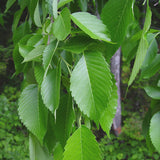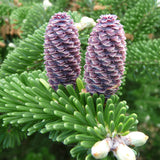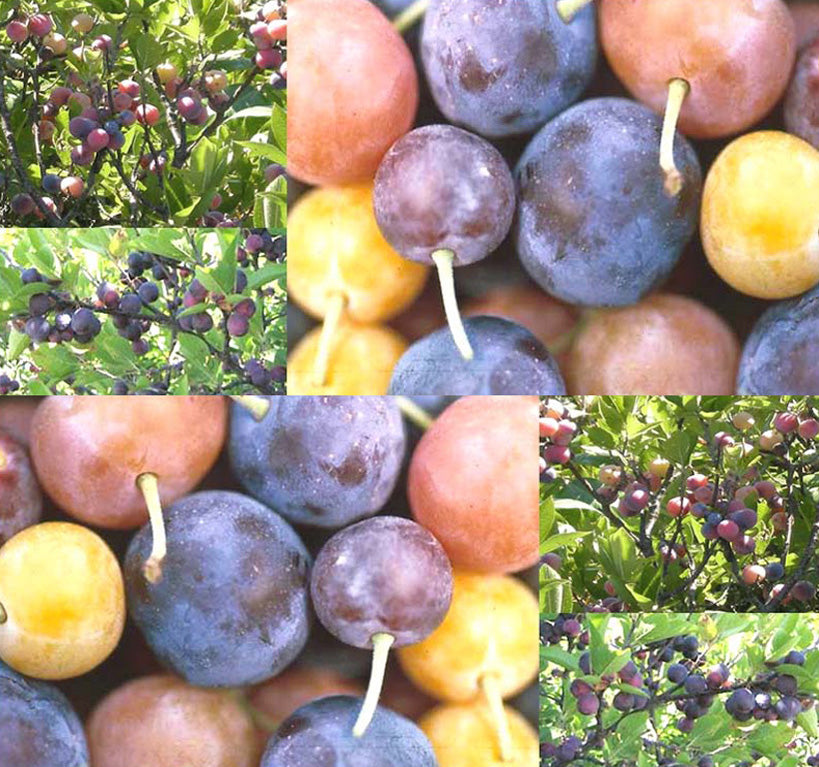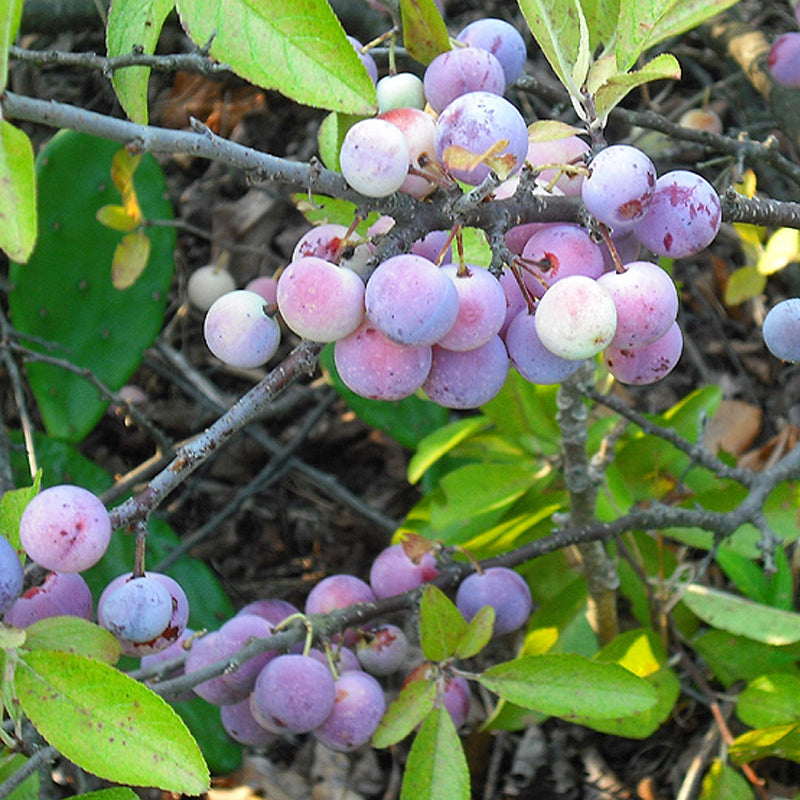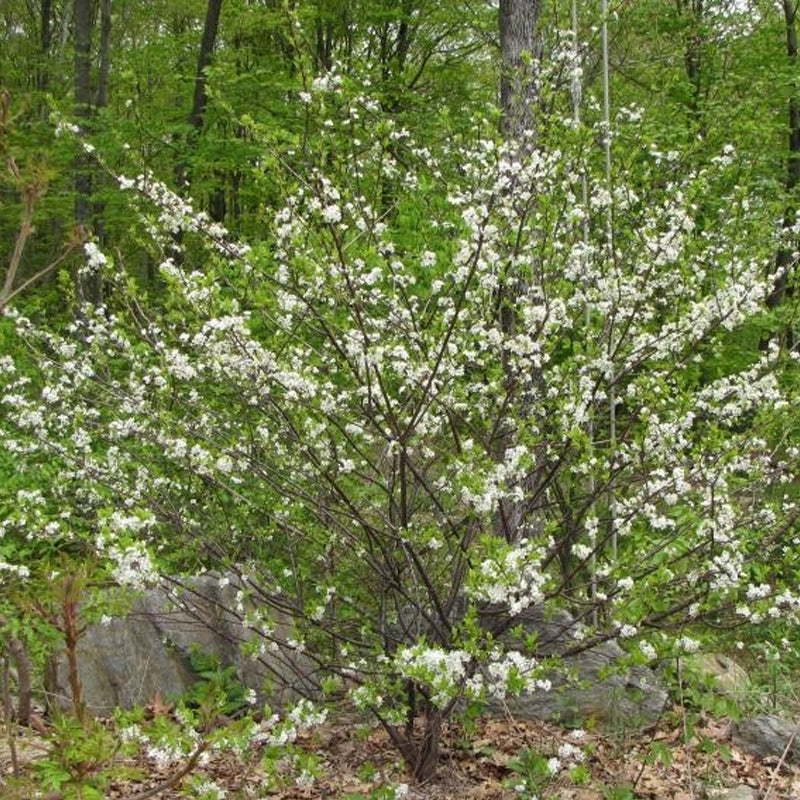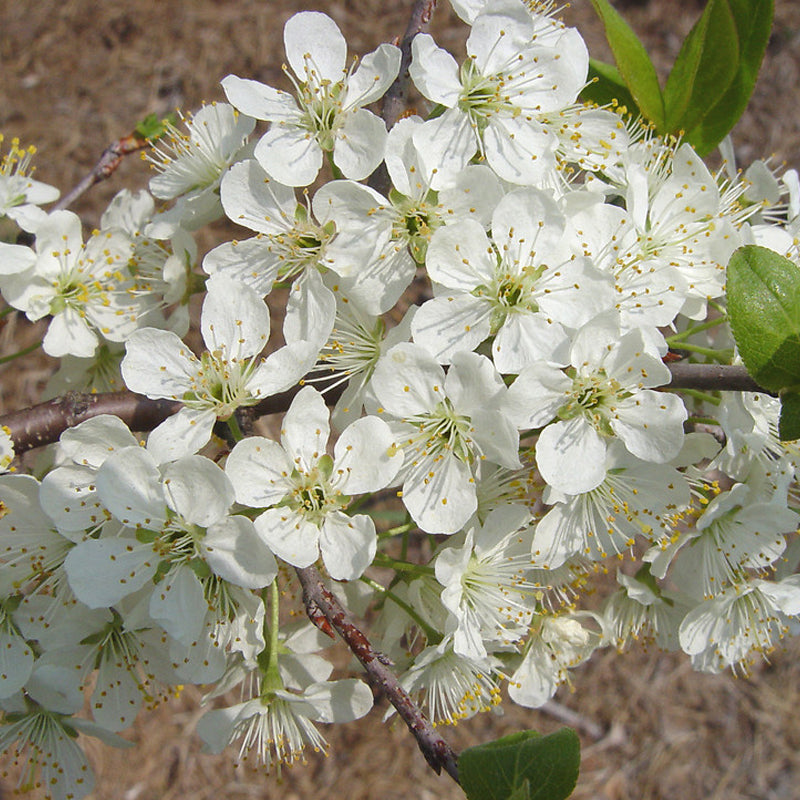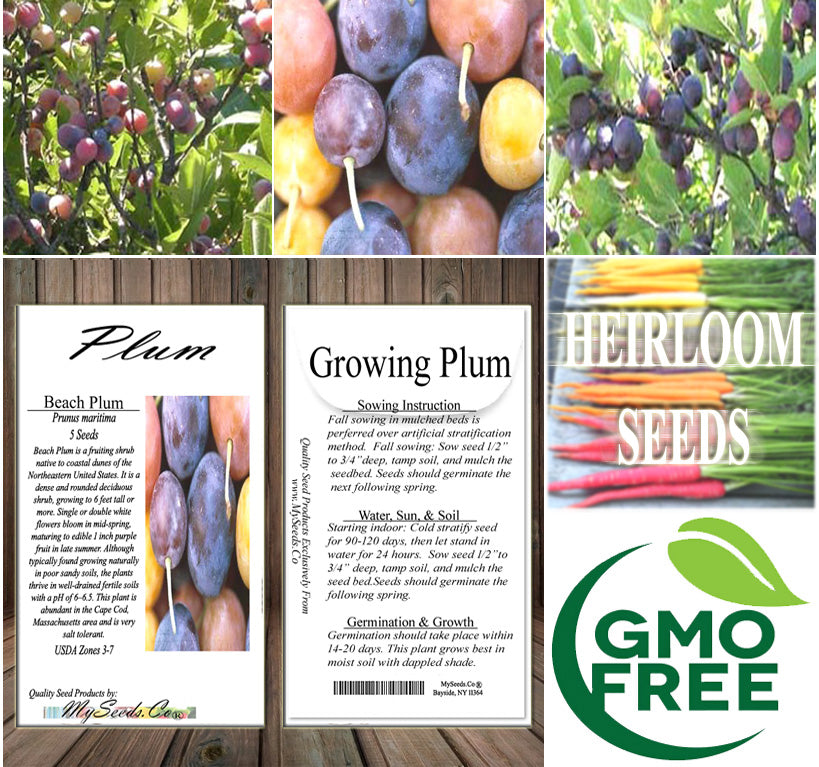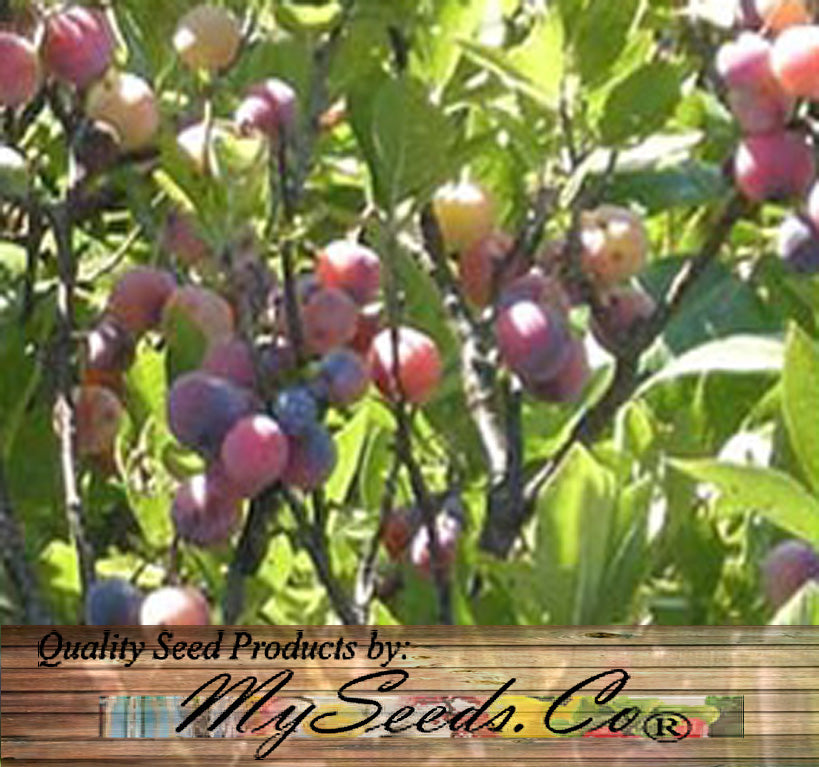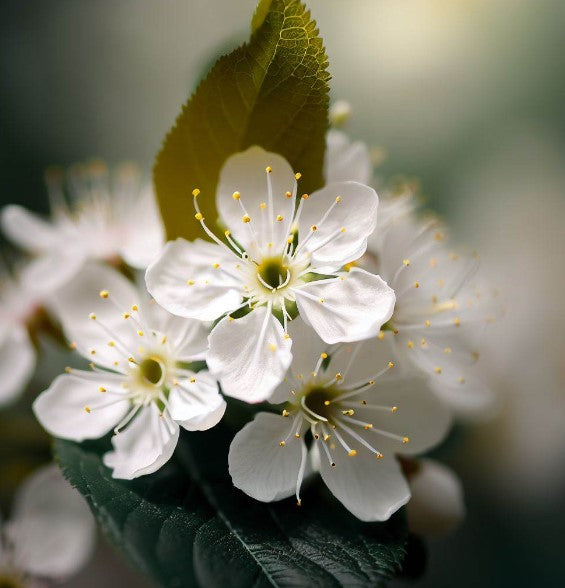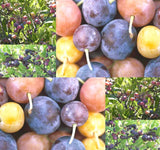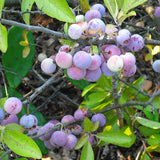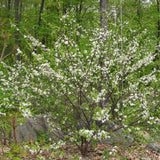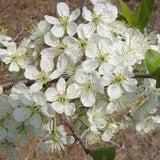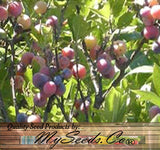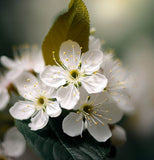Prunus maritima (Beach Plum)
Prunus maritima (Beach Plum) is a deciduous shrub native to the eastern coastal regions of North America, particularly along the Atlantic coast. It belongs to the Rosaceae family and is valued for its edible fruit, its ability to thrive in coastal environments, and its ornamental qualities.
Beach Plum is a small to medium-sized shrub that typically reaches heights of 1 to 3 meters (3 to 10 feet) with a spreading, compact growth habit. It has multiple stems and forms dense thickets.
Leaves: The leaves of Beach Plum are small, oval-shaped, and dark green. They are alternately arranged along the stems and have finely serrated margins. The leaves provide an attractive backdrop to the flowers and fruit.
Flowers: Beach Plum produces small, fragrant white flowers in early spring, typically in April or May. The flowers are solitary or arranged in clusters, and they attract pollinators such as bees and butterflies. The flowering period is relatively short but adds beauty to coastal landscapes.
Fruit: The fruit of Beach Plum is a small, round drupe that varies in color from deep purple to reddish-black when ripe. The fruit is highly regarded for its sweet and tart flavor. It is commonly used in culinary applications, including jams, jellies, sauces, and baked goods. The fruit is also attractive to wildlife, including birds and small mammals.
Bark and Wood: The bark of Beach Plum is smooth and gray when young but becomes rougher and develops fissures with age. The wood is not of significant commercial value due to the shrub's relatively small size.
Coastal Adaptation: Beach Plum is well adapted to coastal environments and is often found growing in sandy or rocky soils along beaches, dunes, and coastal bluffs. It can tolerate salt spray, wind, and poor soil conditions, making it an excellent choice for coastal gardens and landscapes.
It's worth noting that while Beach Plum is valued for its edible fruit, the quantity and quality of the fruit may vary among specific growing conditions.
Botanical Name : Prunus maritima
Common Name : Beach Plum
Height : 13 ft
Spread : 5 ft
Germination Info : Seed requires 30 days warm stratification followed by 60 days cold.
Hardiness zone : 4-7
Average seed per ounce : Approx. 100

